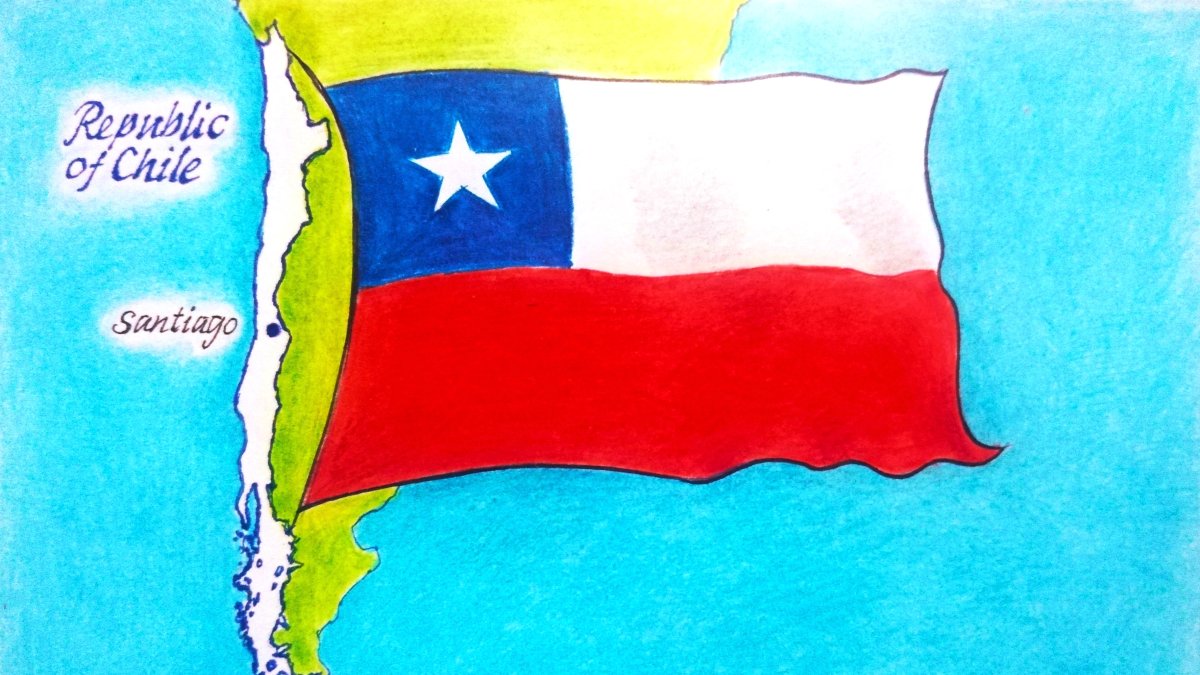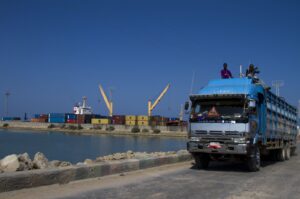We’ve all heard the saying, “Tough times create tough people.” But what if challenging geographical conditions could also foster resilient economies? Chile, often described as geographically isolated, has defied the odds to become one of Latin America’s most prosperous nations in foreign trade, according to data from the Central Bank of Chile and the World Bank. Recognizing the need to overcome its geographical barriers, the country adopted a proactive approach to international trade. Today, it boasts more bilateral free trade agreements than any other country in Latin America, covering 88% of the world’s gross domestic product (GDP), according to the U.S. International Trade Administration.
In this piece, I will explore how Chile did so, its strategic use of trade routes, its diplomatic ties and its agricultural advantages, which have enabled the country to thrive despite its geographical isolation. I will also discuss the potential for deeper collaborations between Chile and Türkiye, particularly in agriculture, renewable energy and technology, highlighting the opportunities these partnerships offer for both nations.
Trade routes, agreements
One of Chile’s most significant logistic features has been its uncommon use of maritime trade routes. While most of the world navigates the Panama Canal from the Atlantic to the Pacific, Chile does the opposite. By approaching the canal from the Pacific side, Chilean ships can reach the U.S. East Coast and European markets more quickly and efficiently. Similarly, Chilean products can directly reach the U.S. West Coast and big markets like California without passing through the canal. This unique advantage has given Chile a competitive edge in global trade, making it a vital link between Latin America and the rest of the world.
Additionally, Chile has positioned itself as a gateway for Latin American trade. By leveraging its ports and logistics infrastructure, the country has become a hub for goods moving between South America and major markets like the U.S. This strategic positioning has boosted Chile’s economy and strengthened its role as a key player in regional trade.
The country has established strong diplomatic ties with its Latin American neighbors and beyond. It is an associate member of Mercosur, the South American trade bloc, and has forged free trade agreements with major economies, including the U.S., China, the EU and even Türkiye. These agreements have not only opened doors for Chilean exports but also positioned the country as a reliable trading partner on the global stage.
Agricultural excellence
Chile’s geographical isolation has also proven to be a boon for its agricultural sector. According to the report published by the InterAmerican Network of Academies of Sciences (IANAS), an NGO founded by scientists across the Americas, the country’s unique natural barriers – deserts, mountains, and oceans – have created a natural quarantine for its agricultural lands. This isolation has made Chile one of the safest places in the world for cultivating food, particularly organic produce.
Free from many of the pests and diseases that plague other regions, Chile has become a global leader in organic agricultural exports. Its fruits, wines and seafood are highly sought after in international markets. The country’s commitment to sustainable and organic farming practices has further enhanced its reputation as a reliable supplier of high-quality food products. In a world where access to healthy food is getting harder while the market grows, Chile’s isolated agricultural lands make it a perfect candidate to dominate the market.
Potential collaborations with Türkiye
Chile’s success in foreign trade has not gone unnoticed. Its growing network of trade agreements has opened doors for potential collaborations with countries like Türkiye. The two nations already share a free trade agreement, signed in 2009, facilitating the exchange of goods and services. Diplomatic visits between the two countries have boomed, especially after President Recep Tayyip Erdoğan visited Chile in 2016.
Recently, Turkish Airlines launched a new route: Istanbul-Santiago, one of the longest flights in the world. This new connection raises expectations that commercial relations between Türkiye and Chile will flourish. Many businesspeople from various sectors, along with the Latin America director of the Foreign Economic Relations Board of Türkiye (DEIK), were present on Turkish Airlines’ inaugural flight to Santiago.
However, there is even more potential to deepen this relationship, particularly in areas such as agriculture, renewable energy and technology. Chile also has free trade agreements with several other countries, such as the U.S., Brazil, Colombia and Peru, making it an important destination for Turkish companies wishing to expand and a strategic logistics hub to achieve Turkish national objectives.
Türkiye, with its strategic location bridging Europe and Asia, could serve as a gateway for Chilean products entering the Eurasian market. Similarly, Chile’s position as a hub for Latin American trade offers Turkish businesses access to a region with immense growth potential. Both countries share a commitment to sustainable development, which could pave the way for joint ventures in renewable energy projects, such as solar and wind power, since Turkish companies operating in the renewable energy sectors can offer knowledge, technology and variable solutions that the region would benefit.
Chile may also serve as a logistics hub for Turkish products heading to the western coast of the U.S., the largest market in the world. Especially for textile products exported to the U.S., which face high customs taxes, making it almost impossible to manage costs. Chile provides Turkish textile companies with a safe haven in which to take advantage of free trade agreements between the three countries.
In the agricultural sector, Türkiye and Chile could collaborate on research and development to improve crop yields and promote organic farming practices. Chile’s expertise in producing high-quality organic food could complement Türkiye’s robust agricultural industry, creating opportunities for knowledge exchange and joint marketing initiatives. Both countries can benefit from Türkiye’s position as the main food supplier in the Eurasia and Middle East regions.
Moreover, the two nations could explore partnerships in the technology and innovation sectors. Chile has made significant strides in fostering a startup ecosystem, while Türkiye has a growing tech industry focusing on software development and engineering. By leveraging their respective strengths, the two countries could drive innovation and create new opportunities for economic growth.
Model of resilience, innovation
In a world where geography often dictates destiny, Chile has rewritten the rules, proving that isolation is no barrier to success when coupled with vision and determination. Its potential collaborations with Türkiye further underscore the importance of building bridges – both literal and metaphorical – to create a more interconnected and prosperous global economy.
As Chile continues to expand its trade networks and explore new partnerships, it stands as a shining example of how a nation can turn challenges into opportunities and carve out a unique place globally. Whether through agricultural exports, innovative trade strategies, or potential collaborations with countries like Türkiye, Chile’s story is one of transformation, resilience and unwavering ambition.




















































Be First to Comment